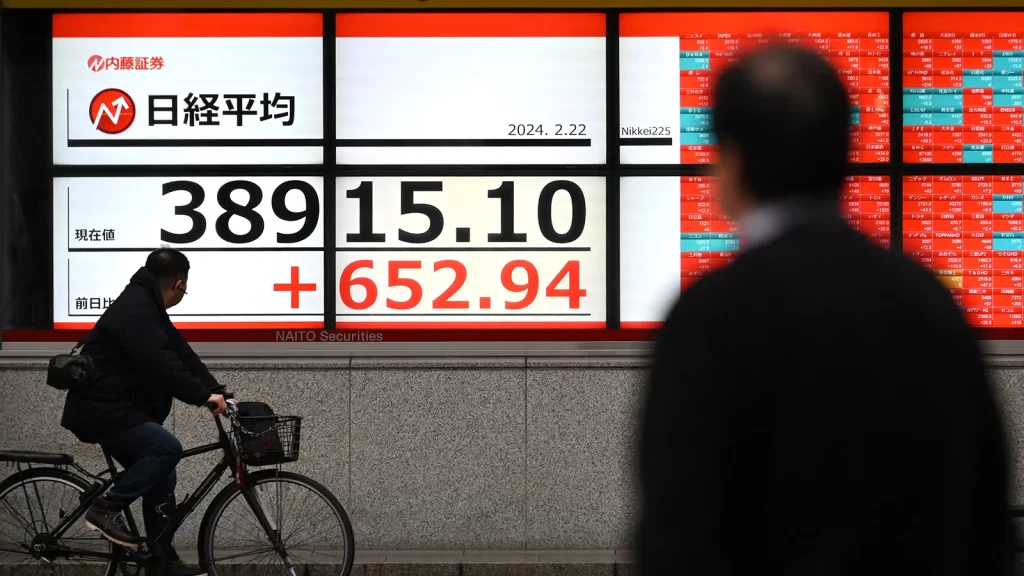
Japan’s stock market has finally set a new record high for the first time since 1989 when an asset-price bubble popped, ushering in decades of economic stagnation.
Strong gains in Japanese semiconductor stocks on the back of Nvidia’s blockbuster earnings report late Wednesday helped push the Nikkei index up 2.2% to close at 39,098.68 points on Thursday, topping its previous record high on December 29, 1989.
But the index has been on a tear for more than a year, driven by a combination of stronger corporate earnings, a weaker yen that helps exporters, and an influx of foreign investors looking for an alternative to China’s depressed markets.
The Nikkei gained 28% in 2023, making it the best performer in Asia. So far this year, it has jumped more than 17%, putting it out in front of other major global indexes.
“This is a moment to reflect on the investor recognition that a true [lasting] bull market has been underway in Japan for some time now and likely offers further gains to come,” Morgan Stanley strategists wrote in a research note on Thursday.
One specific reason for the optimism is strong corporate earnings, they said.
Daniel Hurley, a portfolio specialist for emerging market and Japanese equities at T. Rowe Price, said the rally was primarily driven by strong earnings, a weak yen and corporate governance reforms.
The yen has fallen more than 6% against the US dollar so far this year, after losing about 8% against the greenback in 2023. A weaker currency benefits Japanese exporters and makes shares in the nation’s companies cheaper for foreign investors.
Japanese technology companies also have a bright outlook, as demand for AI soars, Hurley added.
Japanese semiconductor shares jumped on Thursday, after Nvidia (NVDA) said its quarterly profits skyrocketed 769% from a year ago. That drove a surge in Nvidia’s shares in aftermarket trading.
Semiconductor manufacturer Screen Holdings soared 10.2%. It was the top performer among the Nikkei constituents. Advantest, which supplies testing equipment for the chip industry, surged 7.5%. Tokyo Electron, which sells electronics and semiconductor production equipment, jumped 6%.
For the country to sustain this rally, Japan will have to deepen its “corporate governance reforms, which will further boost shareholder returns,” Hurley said.
The Japanese government has implemented corporate governance reforms since 2013, with the aim of making businesses more accountable to their shareholders and promoting their sustainable growth.
Foreign inflows have also supported the rally, Hurley added.
According to recent estimates from Goldman Sachs, Japan’s equity funds have witnessed a cumulative inflow of $5.1 billion so far in 2024. Last year, they registered an inflow of $7.4 billion.
Last June, billionaire investor Warren Buffett’s Berkshire Hathaway added to its holdings in Japan’s five biggest trading houses.





























